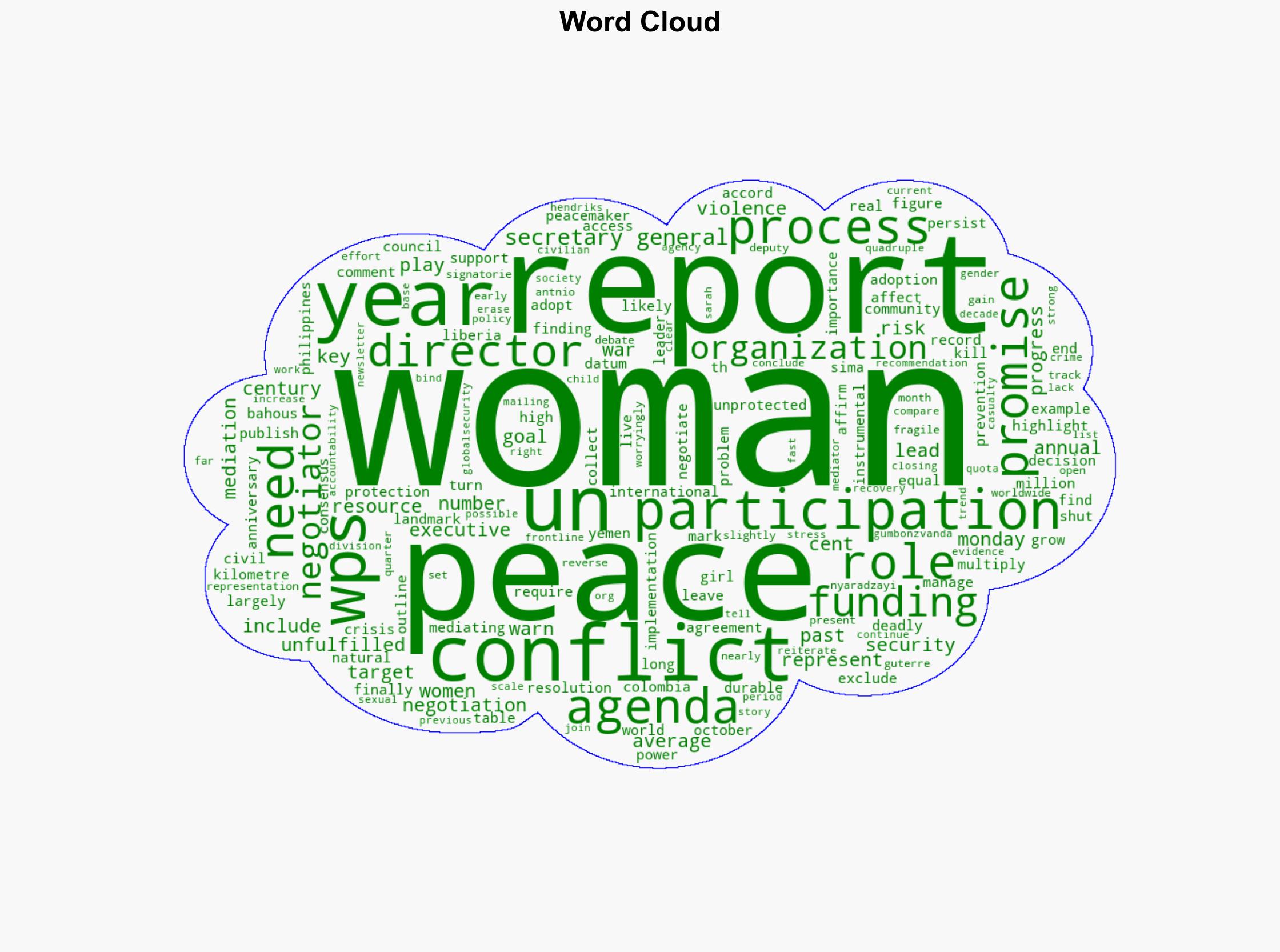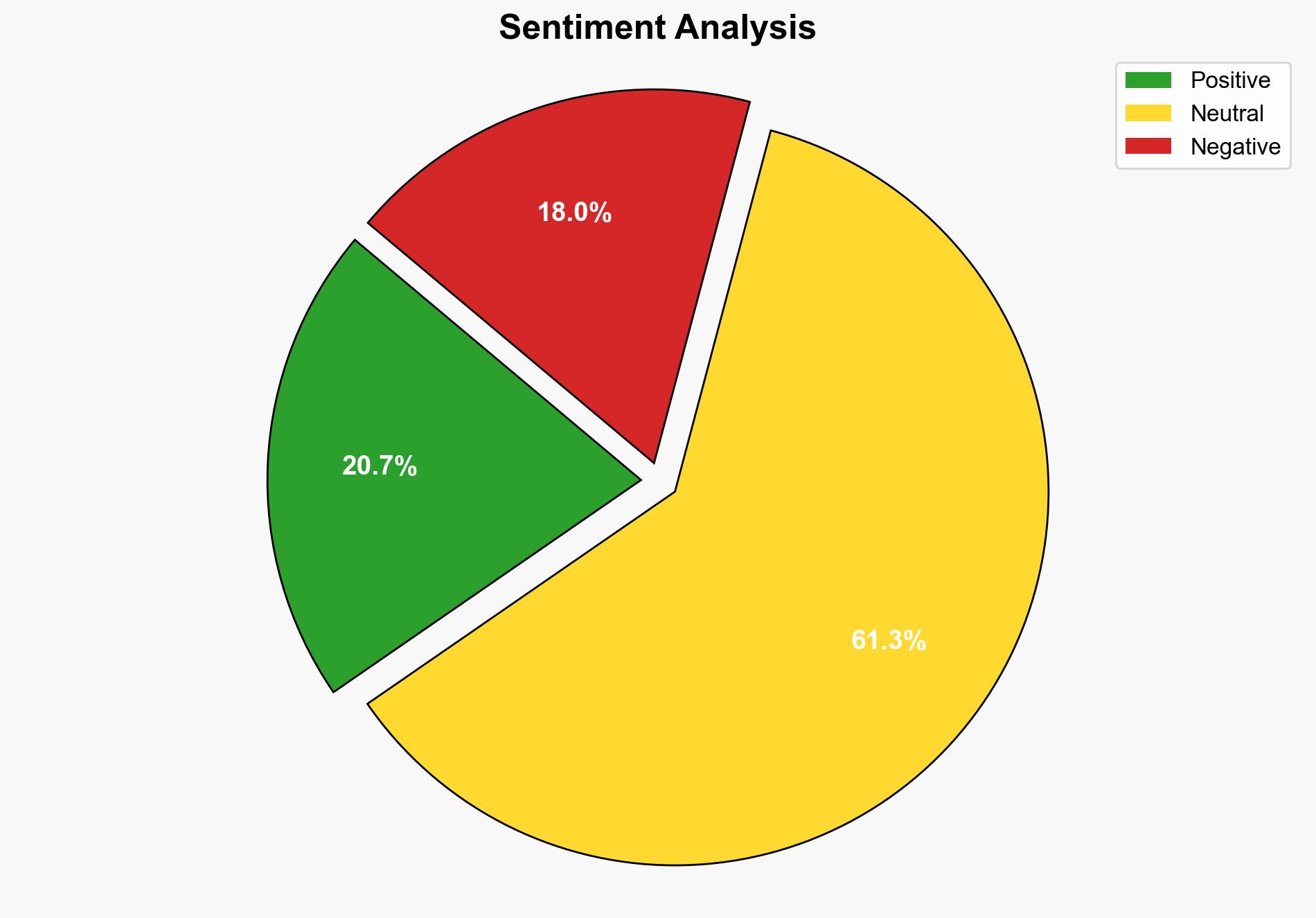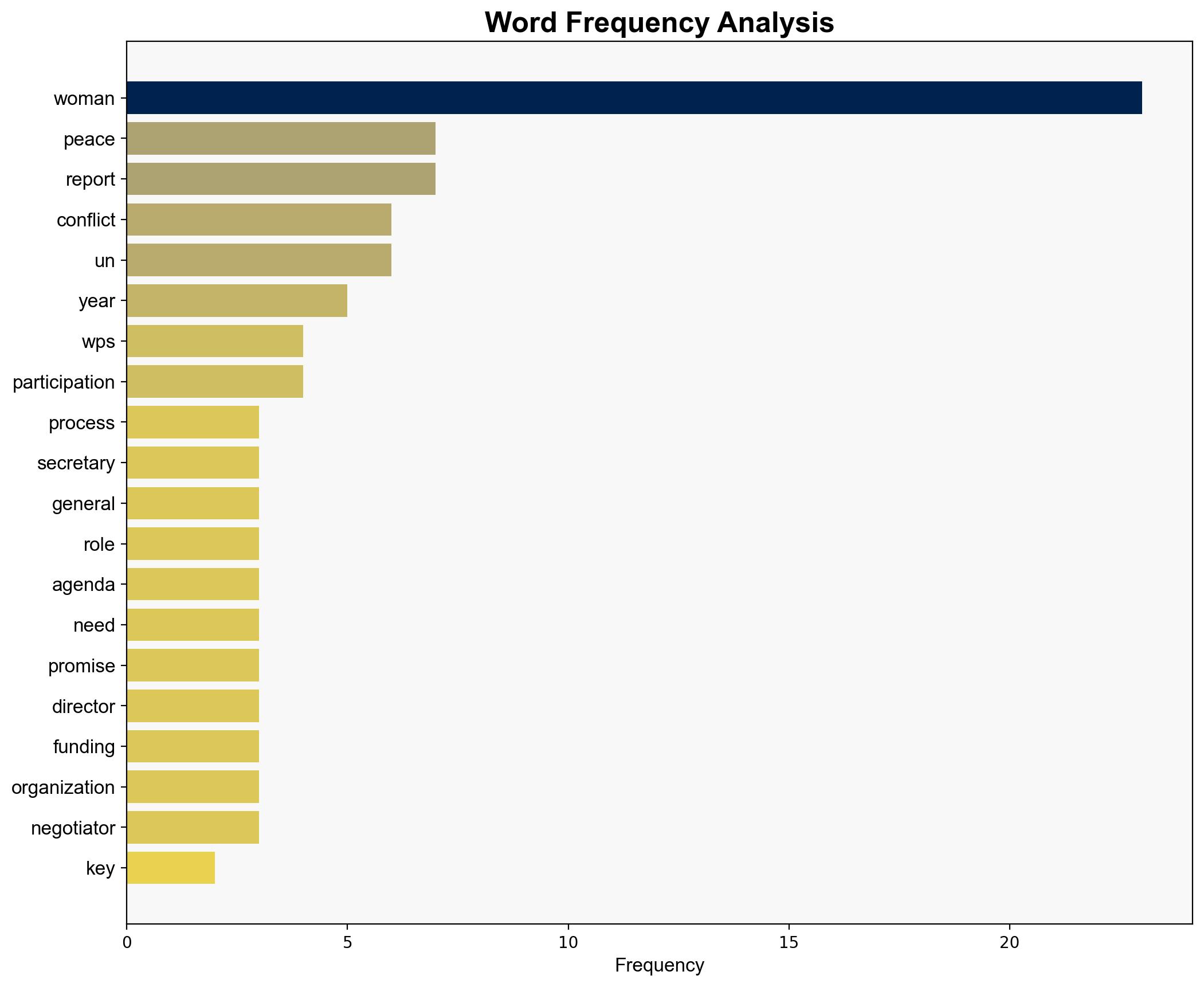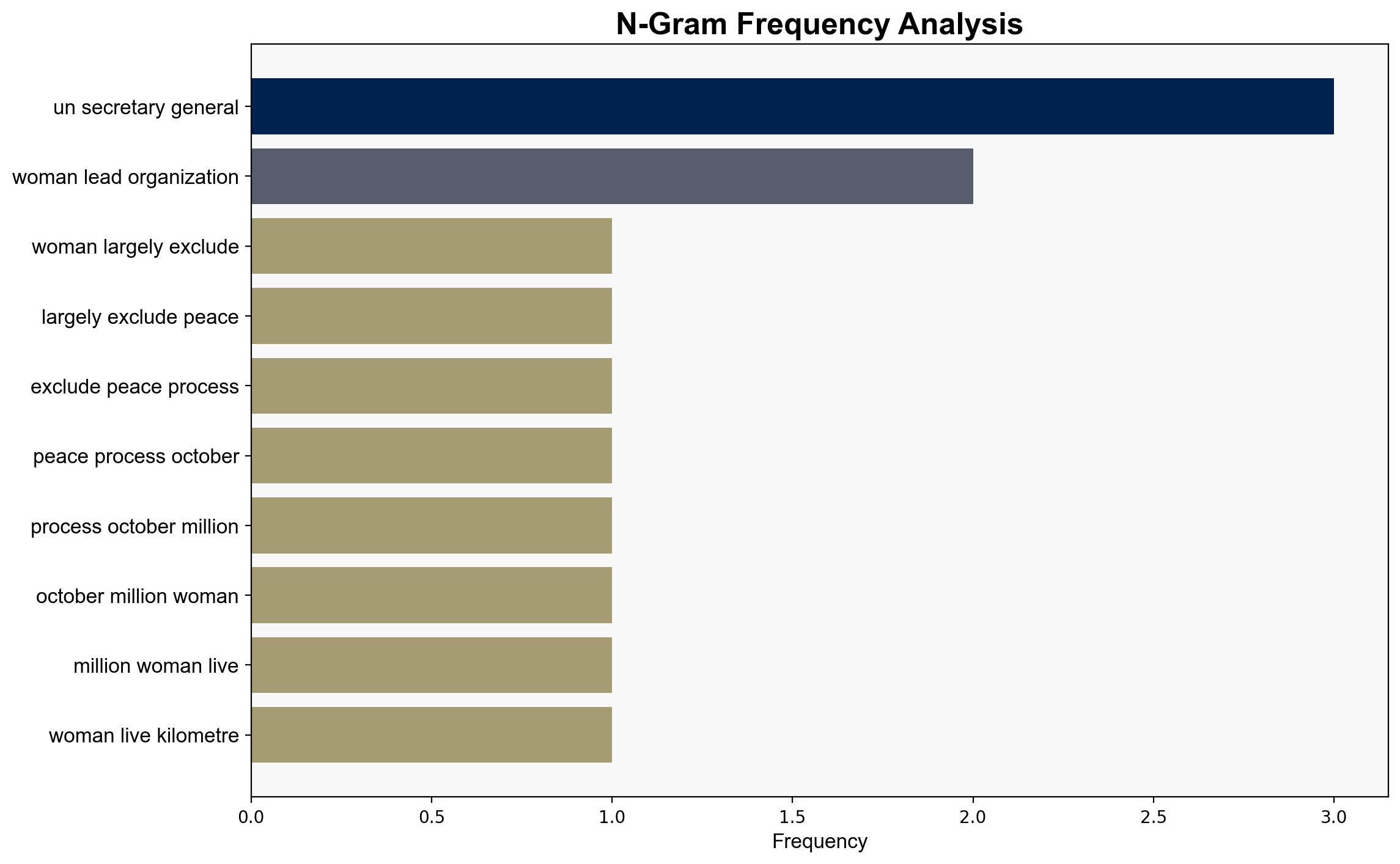Women still largely excluded from peace processes – Globalsecurity.org
Published on: 2025-10-21
Intelligence Report: Women still largely excluded from peace processes – Globalsecurity.org
1. BLUF (Bottom Line Up Front)
The strategic judgment indicates a moderate confidence level that systemic barriers and insufficient international commitment are the primary reasons for women’s exclusion from peace processes. The recommended action is to enhance funding and enforce accountability mechanisms for gender inclusion in peace negotiations.
2. Competing Hypotheses
Hypothesis 1: Systemic barriers and cultural biases within international and local peace processes prevent women’s meaningful participation. This hypothesis is supported by historical data showing consistent underrepresentation and the persistence of traditional gender roles that marginalize women in decision-making.
Hypothesis 2: Insufficient international commitment and lack of enforcement of existing policies and resolutions are the main reasons for women’s exclusion. This is evidenced by the gap between policy adoption and implementation, as well as inadequate funding for women’s organizations.
Using ACH 2.0, Hypothesis 1 is better supported due to the long-standing nature of cultural biases and systemic barriers, which are more deeply entrenched and harder to change than policy enforcement.
3. Key Assumptions and Red Flags
Assumptions include the belief that policy changes alone can drive significant improvements in women’s participation. A red flag is the potential over-reliance on quantitative targets without addressing qualitative aspects of participation. Missing data on the effectiveness of current funding allocations and their impact on women’s roles in peace processes could skew analysis.
4. Implications and Strategic Risks
The exclusion of women from peace processes may lead to less durable peace agreements and increased instability. This could exacerbate existing conflicts and create new security challenges. Economically, this exclusion limits the potential for comprehensive recovery and development. Geopolitically, it may undermine international credibility in promoting gender equality.
5. Recommendations and Outlook
- Enhance funding for women’s organizations involved in peace processes to ensure their active participation.
- Implement accountability measures to enforce gender quotas and monitor compliance with international resolutions.
- Scenario-based projection:
- Best Case: Increased funding and accountability lead to significant improvements in women’s participation, resulting in more durable peace agreements.
- Worst Case: Continued exclusion leads to fragile peace processes and potential escalation of conflicts.
- Most Likely: Incremental improvements in participation with ongoing challenges due to systemic barriers.
6. Key Individuals and Entities
Sima Bahous, Sarah Hendriks, Nyaradzayi Gumbonzvanda, António Guterres.
7. Thematic Tags
gender equality, peace processes, international policy, conflict resolution





